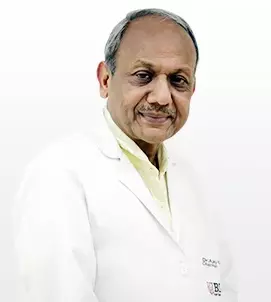- Home
- Medical news & Guidelines
- Anesthesiology
- Cardiology and CTVS
- Critical Care
- Dentistry
- Dermatology
- Diabetes and Endocrinology
- ENT
- Gastroenterology
- Medicine
- Nephrology
- Neurology
- Obstretics-Gynaecology
- Oncology
- Ophthalmology
- Orthopaedics
- Pediatrics-Neonatology
- Psychiatry
- Pulmonology
- Radiology
- Surgery
- Urology
- Laboratory Medicine
- Diet
- Nursing
- Paramedical
- Physiotherapy
- Health news
- Fact Check
- Bone Health Fact Check
- Brain Health Fact Check
- Cancer Related Fact Check
- Child Care Fact Check
- Dental and oral health fact check
- Diabetes and metabolic health fact check
- Diet and Nutrition Fact Check
- Eye and ENT Care Fact Check
- Fitness fact check
- Gut health fact check
- Heart health fact check
- Kidney health fact check
- Medical education fact check
- Men's health fact check
- Respiratory fact check
- Skin and hair care fact check
- Vaccine and Immunization fact check
- Women's health fact check
- AYUSH
- State News
- Andaman and Nicobar Islands
- Andhra Pradesh
- Arunachal Pradesh
- Assam
- Bihar
- Chandigarh
- Chattisgarh
- Dadra and Nagar Haveli
- Daman and Diu
- Delhi
- Goa
- Gujarat
- Haryana
- Himachal Pradesh
- Jammu & Kashmir
- Jharkhand
- Karnataka
- Kerala
- Ladakh
- Lakshadweep
- Madhya Pradesh
- Maharashtra
- Manipur
- Meghalaya
- Mizoram
- Nagaland
- Odisha
- Puducherry
- Punjab
- Rajasthan
- Sikkim
- Tamil Nadu
- Telangana
- Tripura
- Uttar Pradesh
- Uttrakhand
- West Bengal
- Medical Education
- Industry
Decoding Refractory GERD and the Role of Vonoprazan - Dr Ajay Kumar - Video
Overview
Gastroesophageal reflux disease (GERD) occurs when stomach acid flows back into the esophagus due to a weak lower esophageal sphincter. There is no specific treatment to strengthen the sphincter, but we have medications that reduce stomach acid, thereby lessening symptoms. However, with the increasing incidence of GERD, more cases of refractory GERD are emerging. This type of severe GERD does not respond to regular proton pump inhibitors (PPIs). While PPIs typically help heal esophageal damage and relieve symptoms, up to 40% of GERD patients do not respond adequately to this treatment, making refractory GERD a significant challenge.
In this video, Dr Ajay Kumar, Chairman of Gastroenterology & Hepatology at Pan Max and Head of Department at BLK Institute for Digestive & Liver Diseases, BLK-Max Super Speciality Hospital, New Delhi, shares his insights into GERD management, the challenges of treating refractory GERD, and innovative approaches that can improve patient outcomes.
Key Questions Discussed:
1) Why is refractory GERD a growing problem?
2) What unmet needs exist with current therapies for refractory GERD?
3) How does Vonoprazan address the current gaps in GERD management?



